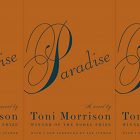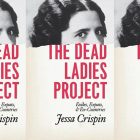The Modernist Revision of a Foreign Culture in Ezra Pound’s Cathay
T.S. Eliot once described Ezra Pound as “the inventor of Chinese poetry for our time.” While this quotation is often cited as praise for Pound’s preeminent translation abilities, it is worth noting that Eliot uses the word “inventor” rather than “translator.” Because Pound, a white man who couldn’t speak or read a word of Chinese, was not even necessarily attempting to faithfully recreate Cathay’s poems in English; he rewrote the poems to fit into American modernist aesthetics, bringing ancient Chinese poetry into his own place and time. Pound’s translations represented the most extreme form of domestication, a practice that theorist Lawrence Venuti called “a manifestation of ethnocentric violence.”
As many have noted, when Pound set out to translate ancient Chinese poetry for Cathay, he did not have the help of a native speaker, but rather line-by-line linguistic notes from Ernest Fenollosa, the late American professor of Japanese art. Since Fenollosa was not fluent in the language, Chinese critics have noted many obvious misreadings that were transferred from his notes to the end product of Cathay; Chinese scholar Achilles Fang catalogued in his essay “Fenollosa and Pound” Cathay’s linguistic errors, which were numerous. Far too numerous, in fact, for Cathay to be taken seriously as a faithful translation of Chinese.
That being said, this lack of fidelity to the source language is not only overlooked by many critics, but outright admired. When Cathay was published, American and Chinese scholars alike praised his translations, claiming that they stand on their own as transcendent works of art. Further, many claimed that his translations, or “translucences,” are even more faithful to the spirit of the original poetry, partially as a result of Pound’s sense of freedom from the literalities of the language. Chinese critic Wai-lim Yip famously wrote: “One can easily excommunicate Pound from the Forbidden City of Chinese studies, but it seems clear that in his dealings with Cathay, even when he is given only the barest details, he is able to get into the central concerns of the original author by what we may perhaps call a kind of clairvoyance.”
However, a closer analysis of the poems in Cathay reveals that Pound “smoothed over” many distinctly Chinese aspects of the poetry in order to make it fit an American aesthetic. For example, the original poems all had a strictly regulated structure distinctive to Chinese poetry: eight lines of five characters each with consistent rhythms and rhyme schemes. Pound’s versions, by contrast, were written in blank verse with a distinctly Modernist feel. While many translators have decided that maintaining such specific structural requirements is an impossibility while preserving the meaning of a poem, Pound admitted that he “had no inkling of the techniques of sound” in the original poems, even though he conceded that they “must have existed” in Chinese poetry.
Pound’s conception of the Chinese language was not only under-informed and exoticizing, it was often flat-out wrong. He was convinced that the ideographic nature of the Chinese language—the fact that the meaning of the characters is often visual rather than phonetic—made it the ideal model for Modernist poetry, and yet scholars agree that only a very small percentage (maybe 3%) of Chinese characters are ideographic, if that. As a matter of fact, the notion of an entirely ideographic language is still hypothetical; one can only find one in the literally alien language created for the science fiction film Arrival. He cited the “ideogrammatic” and image-laden quality of Chinese poetry as inspiration for the Imagism movement, even though that style did not appear in the contemporary Chinese poetry at that time. In other words, he cherry-picked qualities of a very specific era of Chinese poetry in order to serve as inspiration for the next stage of Modernist poetry. And yet, Pound was entrusted by Western literary theorists to characterize the nature of “the Chinese poem” and its importance to American literature, in spite of his limited, and often falsifiably incorrect, view of Chinese language and culture.
In spite of Pound’s controversial legacy, many Chinese theorists have credited him with a genuine desire to lift up Chinese literature in the West. Fang noted that Pound was “mainly responsible for promoting Chinese studies among non-sinologists.” Pound explicitly lamented that Chinese culture had been stereotyped and overlooked by Western authors and critics, and essentially advocated for American literature to be more like Chinese literature, not the other way around. And indeed, the highly acclaimed response to Cathay was primarily responsible for the profound influence of Chinese poetry on American modernism. But even if his intent weren’t as simple as the typical colonialist arrogance, that doesn’t change the inherently problematic nature of Pound, a man who was openly ignorant of the Chinese language, being tasked with defining the literary concerns of an entire (and entirely foreign) culture.
But, some will argue, does it really matter? Translations are often considered to be their own works of art, so as long as the poems in Cathay stand up as beautiful poetry (which they certainly do), it shouldn’t matter whether they are strictly faithful to the originals. Artists take inspiration from other artists every day, and often adapt entire stories for different time periods, cultures, and/or mediums. Then perhaps the problem is not with the existence of Pound’s poems themselves, but rather with their characterization as “translations” when they would be better termed “adaptations,” or just “inspired by” Chinese poetry. Because even putting the political ramifications aside, Pound’s work far more closely resembles a loose adaptation in the vein of O Brother, Where Art Thou or Ten Things I Hate About You (based on The Odyssey and Taming of the Shrew, respectively) than an actual translation. However, to solely credit Pound is problematic as well, not only because they are based on the work of Chinese poets, but because explaining Cathay away as an independent groundbreaking work by Pound effectively erases Chinese poets’ influence on Modernism.
The real problem, however, seems to be that Pound’s hypothetical, Western conception of “the” Chinese poem, rather than Chinese poetry itself, had a direct influence on the Modernist movement. And therein lies the importance of translations that (at the very least) aim to be linguistically and culturally faithful—otherwise we will violently shoehorn all other cultures’ literary movements into slightly exoticized versions of Western aesthetics. In other words, without faithful translations, all of the worlds’ literature in English will be heavily filtered through the “American gaze.”



